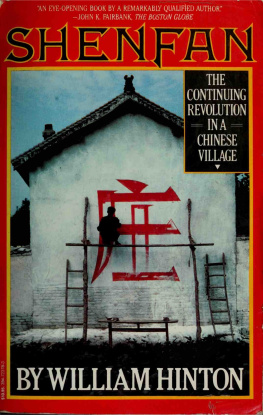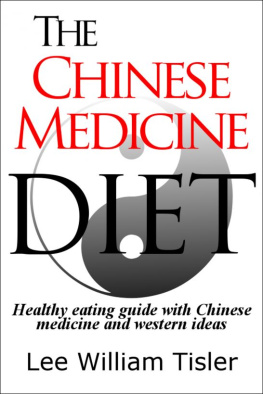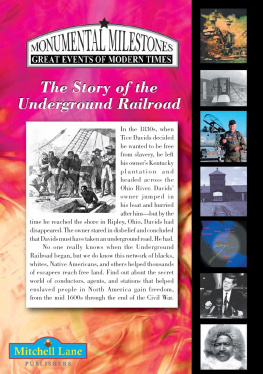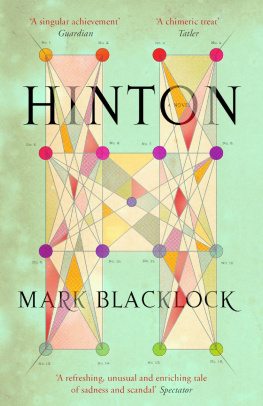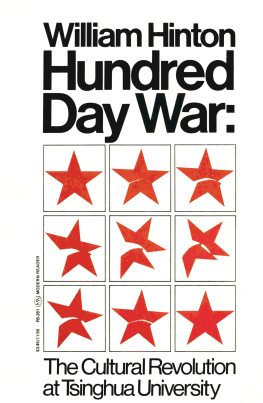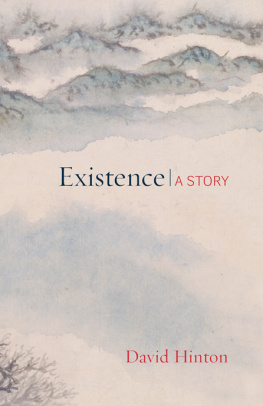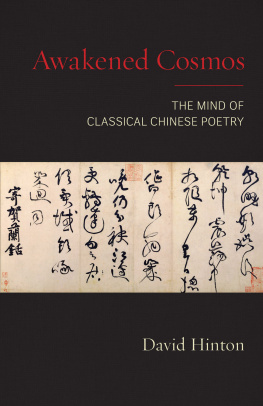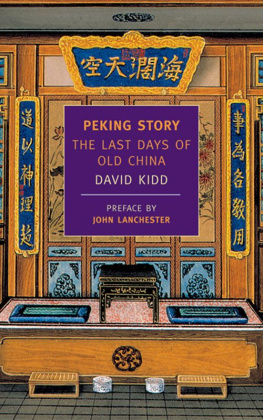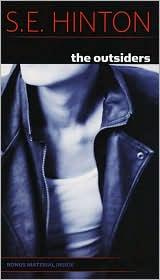Acknowledgments
First of all I want to thank the people of Long Bow village for the hospitality they have extended to me over so many years and for the goodwill and patience they demonstrated as I tried to grasp the tortuous course of their communitys history and at the same time learned to wield a Chinese hoe. The officials of Horse Square Commune, Changchih City, the Southeast Shansi Region and Shansi Province also deserve heartfelt thanks. Without them I could never have carried out my investigations in Long Bow village or learned about the social, political and economic relations that surround, support and are in turn supported by life at the grass roots.
At the national level Premier Chou En-lai had the vision and the courage to invite me back to China at a time when many of his colleagues regarded Fanshen as a very controversial book. A true internationalist, he treated me, my wife and my children like members of one world family, as did the indomitable Hsing Chiang, who planned our far-flung travels. After Premier Chous death it was the staff of the Chinese Peoples Association for Friendship with Foreign Countries and its wise chairman, Wang Bing-nan, who welcomed the continuation of my efforts and made possible so many subsequent trips to Southeast Shansi. Both Chang Hsueh-liang and Kuo Tse-pei served as exemplary guides and interpreters and showed the kind of love and respect for peasants and peasant life that made them comfortable companions. The beautiful headquarters of their Association, across the street and around the corner from the Peking Hotel, is a delightful refuge for any weary traveler.
Back home I have to thank Random House for patient support over many years, years when it sometimes looked as if no book would be forthcoming. Toni Morrison, a most sympathetic and devoted editor, has given me tremendous encouragement to keep plugging away at what often seemed a task that had no end. Without her enthusiasm and keen sense for the order and fitness of various sequences, not to mention the order and fitness of words as such, I might well have bogged down long ago. Thanks also to Dotty Seidel of Topton, Pennsylvania, and Eileen Ahearn of Random House for being able to produce clean typed pages from the overcorrected, illegible drafts that I constantly turned over to them.
I owe more than I can hope to repay to my daughter Carma, who accompanied me through two long sojourns in Long Bow, who translated endlessly for me and, on her own, dipped into aspects of village life that I would not ordinarily have access to. Her in-depth, intuitive sense of the realities of Chinese life and her mastery of Chinese literature and culture have opened many a door for me and saved me from many an error.
My heartfelt thanks go also to Wu Hung, a Peking student of philosophy, now studying at Harvard, for suggesting Shenfan as the title for this book and pointing out the various levels of symbolic meaning that the word may take on.
Finally, I want to thank the rest of my family for the patience they have shown for more than a decade in the face of the crankiness generated by literary frustration, and also for their calmness in the face of the financial austerity that a work too long in progress inevitably entailed. I gave up farming to complete this book and gave up lecturing to gain more time for it. Although we never doubted that the next meal would be forthcoming, we did sometimes wonder when we would pay the oil bill and how we would pay the taxes. Debts also piled up. I hope Joanne, Michael, Alyssa and Catherine will decide that it has all been worthwhile.
Shenfan
Shenfan is a common word in the Chinese countryside. It means deep tillage, deep plowing, a deep and through overturning of the soil. Between the completion of the fall harvest and the onset of winter people go out to turn the earth. Side by side, armed with mattocks or spades, they dig the wide fields in preparation for next years planting.
During the Great Leap of 1958 Shenfan came to stand for the vast, grass-roots movement to increase farm production that swept the hills and plains. People believed that the deeper they dug into the ground, turning both soil and subsoil, the more grain they would reap. They also believed that, in the absence of machinery, they must depend on their own hands to till the soil as deeply as possible, thus laying the foundations for a bountiful harvest.
Attributing to the word symbolic meaning, Shenfan suggests all the painstaking effort peasants are willing to make once they own their own land, and it can express the hope they have for their land. It may also express the spirit of the cooperative movement by means of which people, working together, try to fashion a new way of life on ancient fields.
Overall Shenfan stands here as a symbol for the drastic changes that have taken place in Chinese society since 1949. These changes have, after all, been brought about by incessant deep-digging by turning and overturning Chinas social foundations in a rigorous search for a bright road to the future. Shenfan, it is clear, inevitably follows on the heels of Fanshen.
All the Chinese words in this book are spelled according to the familiar Wade-Giles system. In China this has been superseded by a new, official Pinyin (phonetic) system, which many authors and publishers outside China are already using. I have chosen to stick with the old Wade-Giles system, primarily because Shenfan is the sequel to Fanshen, in which all the Chinese spellings are Wade-Giles. Most of the place names and the personal names in the new book would differ sharply from those in the old if I adopted the new official spelling. Since these names are confusing enough to the Western reader, it seemed best to maintain continuity and hew to the familiar.
Preface
There is nothing more difficult to take in hand, more perilous to conduct, or more uncertain in its success, than to take the lead in the introduction of a new order of things.
Niccol Machiavelli
I assembled the raw material for a contemporary history of Long Bow village with some difficulty, over a long period of time, fighting a battle or two to obtain various components and a battle or two to hold onto them. I digested the material slowly and molded it even more slowly into its present shape, challenged always by the unfolding complexity of the subject. Note-by-note, skirmish-by-skirmish, page-by-page, the project lured me into an unpremeditated life work.
Between the time I gathered my first notes in Long Bow village and the time Fanshen appeared in print, eighteen years passed. Between the time Fanshen appeared in print and the time Shenfan is scheduled to appear, another seventeen years will have rolled by. A final volume, Li Chun, may well consume two more. The best that can be said for these delays is that the longest of them were dictated by circumstances beyond my control. After I left Long Bow in 1948 I spent five years teaching farm mechanization to Chinese peasants, hence found no time to write. When I returned home in 1953 the U.S. Customs seized my notes and turned them over to Senator Eastlands Committee on Internal Security. I won them back in 1958 only after a protracted and expensive lawsuit. With notes in hand at last, it took me six years to write the book and two years to find a publisher courageous enough to print it. The publisher was Monthly Review Press, headed by Paul M. Sweezy and the late Leo Huberman. They brought out Fanshen in 1966.
Long before I finished Fanshen I made up my mind to go back to Long Bow to learn what happened to its citizens following land reform. Unfortunately at that time I could not implement the decision. I was not allowed to travel. Because I stayed on in China after 1949 and spoke favorably of the Chinese revolution after I came home, Mother Shipley at the State Department denied me a passport. For fifteen years I could not venture beyond Canada and Mexico, two countries that do not require passports of American citizens.

